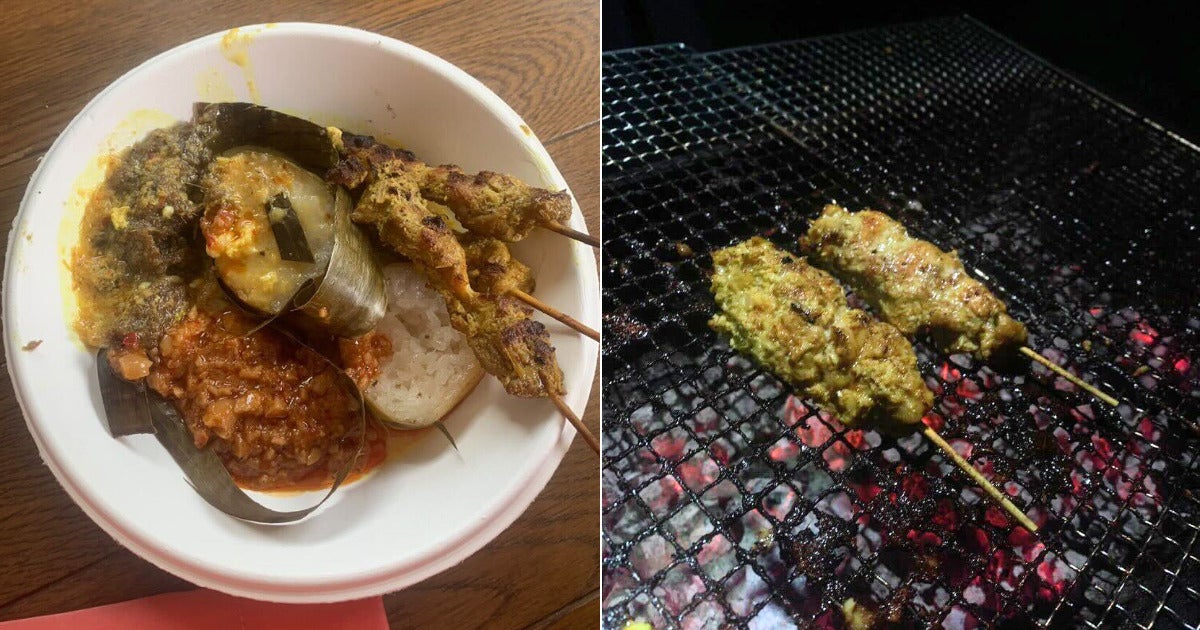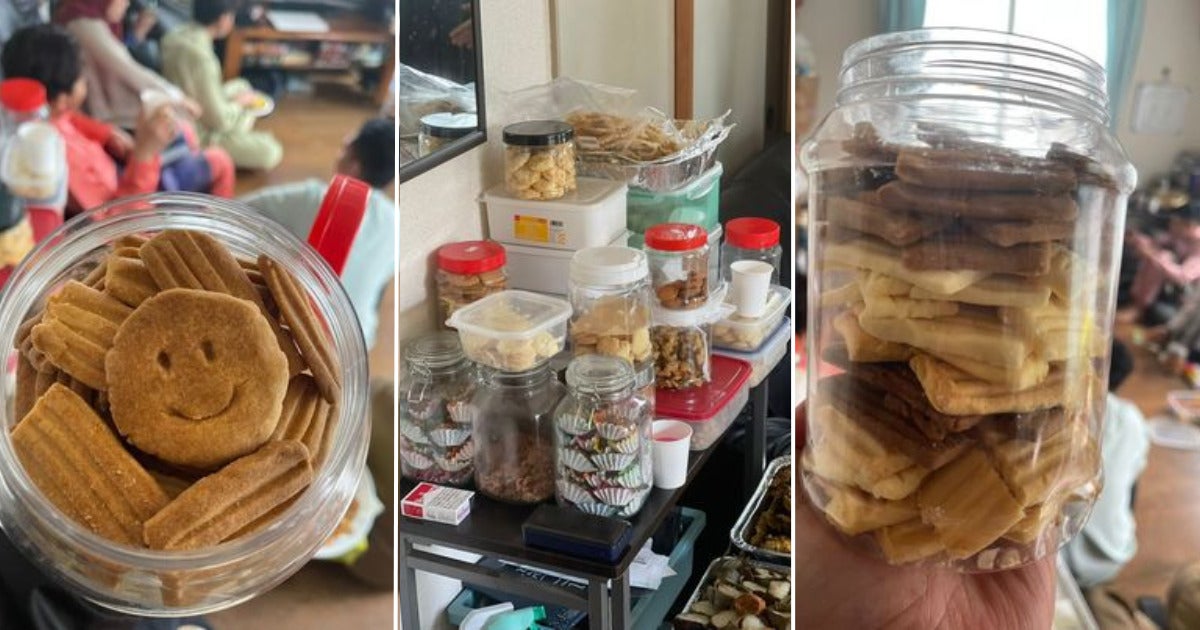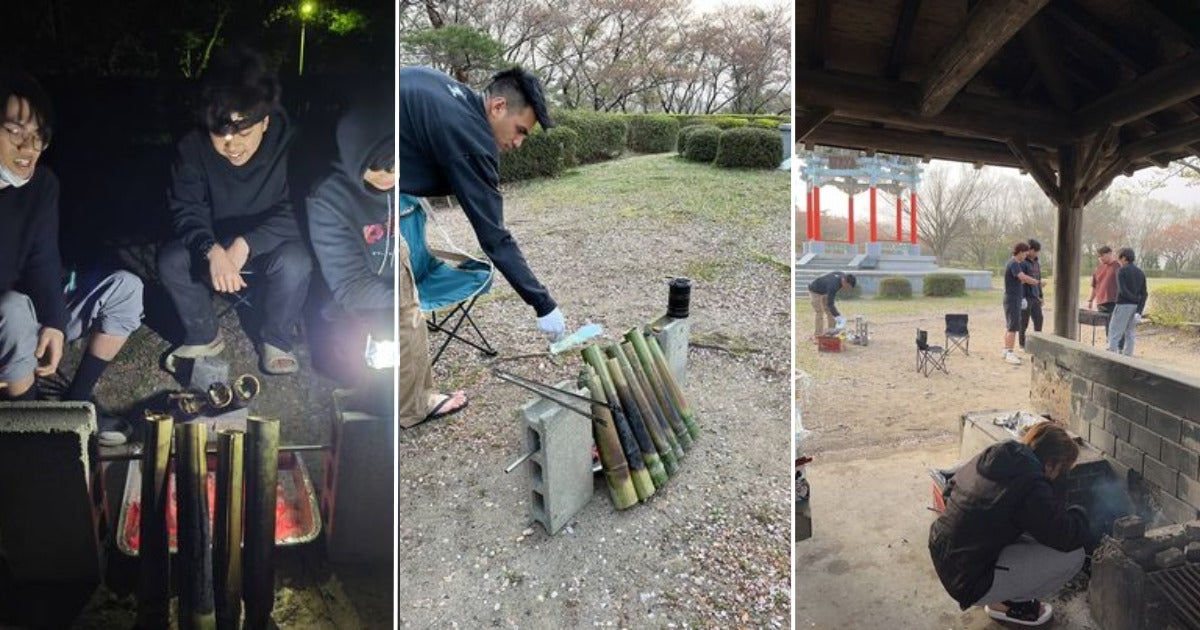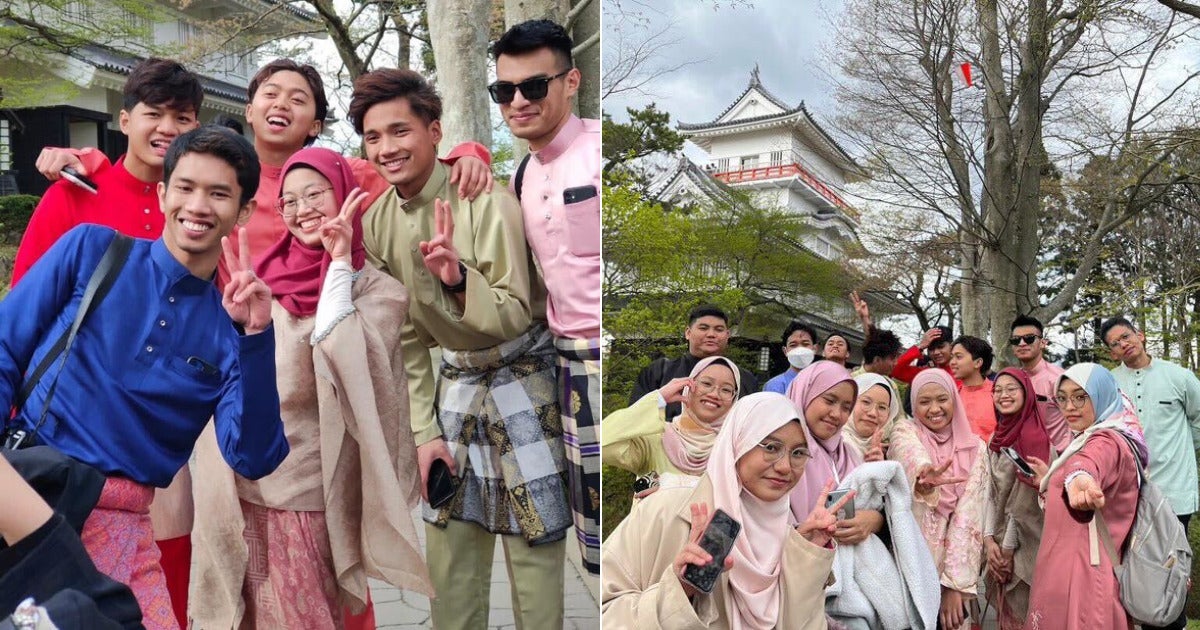Disclaimer: In Real Life is a platform for everyday people to share their experiences and voices. All articles are personal stories and do not necessarily echo In Real Life’s sentiments.
Subscribe to our Telegram for updates
I’m Ipin, a Malaysian student in Japan. Since there were many Muslim students who stayed back, we decided to hold our Hari Raya event in Sensyuu park (千秋公園), Akita city.
There were 23 Muslim attendees from Akita University, Akita Daihatsu Service Centre, and Hirosaki University.
To prepare for the event, we wanted to make authentic Malaysian food from local and imported ingredients, but the one dish we couldn’t get here was lemang.
With lemang, you need a proper fire and bamboo, but in Japan you can’t make a fire outdoors. So we had to come up with something creative.
Making the Raya food cost MYR 4000 and took 12 hours to complete

We made the food together with our Head Chef, Sayfiyy, 22, one of the students here in Akita University.
As we were busy all day on the weekdays, we spent almost 12 hours making the food. On the menu were ketupat, rendang, lodeh and satay.
The main challenge to make these foods was getting their ingredients: kerisik, santan and many more.
As it is the spring season during that time, it was nearly impossible to get tropical country ingredients here such as coconut.
We ordered some of the ingredients from Malaysia directly a month earlier which is worth more than 4000 MYR including postage.
Even though it was a little bit pricey, we knew that the vibes and taste was worth every penny.
Finding Halal food was the most important part of the preparations

As we couldn’t get the kerisik and santan locally, we ordered them from Malaysia a month earlier. We also ordered the oil and meats from a halal Bangladeshi raw food supplier. They were worth more than RM4,000 including postage!
We spent almost 12 hours making all the food during the final week of fasting, including ketupat, rendang, lodeh and satay, and even kuih Raya.
By the time Raya came along, we had made more than 16 kinds of kuih Raya including the traditional semprit and kuih suji.
We grilled the lemang in Japanese bamboo at a camping site

As we couldn’t make open fires in public, we drove a whopping 1 hour to a camping site just to be able to grill them.
The bamboo was bought in a furniture factory in Japan and cost around RM 600 for just one bundle.
In addition, the bamboo had its own unique scent which gives off a better aroma when eating the lemang.
As this was our first attempt at making it, we were surprised at how having the satay and lemang felt so nostalgic.
Our experience of Hari Raya in Japan was a heartwarming one

The weather was a little chilly at 15 degrees, and many wore their Baju Melayu with outerwear to keep warm, according to 22-year-old Aziz, another Akita University student.
“The food was delicious and as there were many kinds of food that we prepared, it feels just like a day in Malaysia in terms of the Eid foods,” Farhan, 21, a Daihatsu centre worker says.
“Somehow, the food made me miss my parents and the feeling of eating ketupat with your family together,” Shafiza, 21, Akita University student added.
Since we felt nostalgic for Raya, we created our own Raya song which we posted on YouTube. The song, called ‘Raya Ada Ada’ sums up how our Raya is going here in Japan. Watch the video here.
Do you have a personal story? Email us at ym.efillaerni@olleh
For more stories like this, read: https://inreallife.my/4-ways-a-japanese-company-works-differently-from-a-malaysian-one/
You might also like
More from Real People
‘A RM100 fee cost a company 5 years of revenue’ shares M’sian
This story is about a Malaysian who learned that bureaucracy can be defeated simply by not arguing with it.A billing …
‘I quiet-quit, upskilled, and tripled my salary,’ shares M’sian engineer
This story is about a Malaysian who learned that loyalty without leverage leads nowhere in the corporate world.After years of …
‘I did everything right, and it still wasn’t enough’ shares M’sian graduate
This story is about a Malaysian graduate navigating big dreams in a job market where a degree no longer guarantees …


















